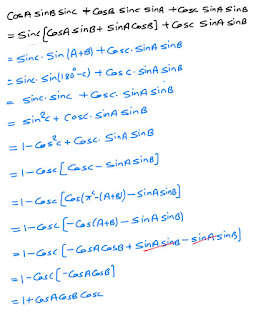The reasoning goes like this. We are all probably comfortable with the fact that the heavier an object is, the more work we have to do to achieve a given change in speed - which is why truck engines are bigger than car engines! In fact, as Einstein recognized, it is not the just the mass of an object which determines its resistance to change in speed, but its energy.
This energy consists of the energy the object has when it is at rest (its 'rest energy', proportional to its mass via the famous formula E = mc2), plus the kinetic energy it possesses due to its motion. The faster an object moves, the greater its energy, and hence the greater its resistance to further increases in its speed - meaning we have to do more work to achieve a given additional increase in speed.
This cycle gets out of control as the speed of an object approaches the speed of light, in that it would take infinite amounts of energy to accelerate an object to a speed greater than that of light.
By mahesh saagr khanal for scientific nepal
reported by mahesh sagar khanal for scientific nepal






0 Comments